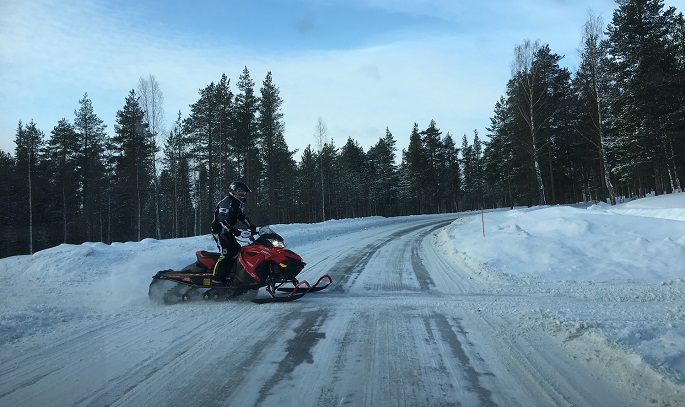Promotion of Arctic bio-economy recommended
Published : 28 Aug 2018, 00:56
Updated : 28 Aug 2018, 09:32
Natural Resources Institute Finland (Luke) on Monday released a set of recommendations to promote bioeconomy in the Arctic.
The policy brief is compiled by researchers and provides policymakers with information about the Arctic in Finland, summing up its opportunities and sustainable use, said a press release.
The move is aimed at ensuring sustainable development in the changing climate and getting more Finnish products for the Asian market.
Finland has been serving as the chair of the Arctic Council since the summer of 2017. According to Research Professor Sirpa Kurppa of Luke, technological issues, such as the Arctic seaway and oil reserves have been emphasised during the Finnish chairmanship. Therefore, he said, the need to gather information on the specific issues of the Arctic bio-economy is urgent.
Traditionally, only the regions north of the polar circle are included in the Arctic. Recently, Norway has invested significantly in its northern regions. Moreover, during the Jean-Claude Juncker era, the European Commission has emphasised that the outermost regions of the EU are no longer automatically supported, but unique features are needed for financial support. Therefore, Finnish Lapland should strongly and smartly promote the Arctic.
The work has already begun in Lapland. The Arctic conditions of Lapland and their use have been taken into account in the regional developmental strategy and Lapland has built the capacity to promote itself in the long run, Kurppa said.
According to Kurppa, the importance of the Arctic is also growing in the Finnish economy. “For example, the systems operating in cold conditions can be developed and tested all over the country. In increasing the added value of Arctic food, we should take full advantage of all the knowledge and technology of Finnish experts from all over the country.”
Extreme natural conditions are the starting point in the Arctic bio-economy. Researchers have clarified how vulnerable nature can be at different times of the year. The policy brief also addresses conflicts between different types of land use. The aim is to promote sustainable tourism and to maintain traditional land use, such as reindeer husbandry.
“Tourism grows fast and Finns should now consider how to manage on their own. There is a great danger that tourism will move into the hands of the global players and our own influence will diminish. With mass tourism, the northern uniqueness can be ruined in an instant,” Kurppa warned.
The policy brief written by researchers not only looks at the policy challenges but includes the strengths of Finland in the Arctic bio-economy. The cleanliness of food production and the supporting images of the Arctic are absolute strengths that can be made use of.
“Specific opportunities can be found in berries, perhaps also potatoes and other food products, to which the long, bright summer time brings its own aroma,” Kurppa said.
The Arctic food is aimed at the Chinese market and the rest of Asia, where high quality and pure food is in particular demand.


